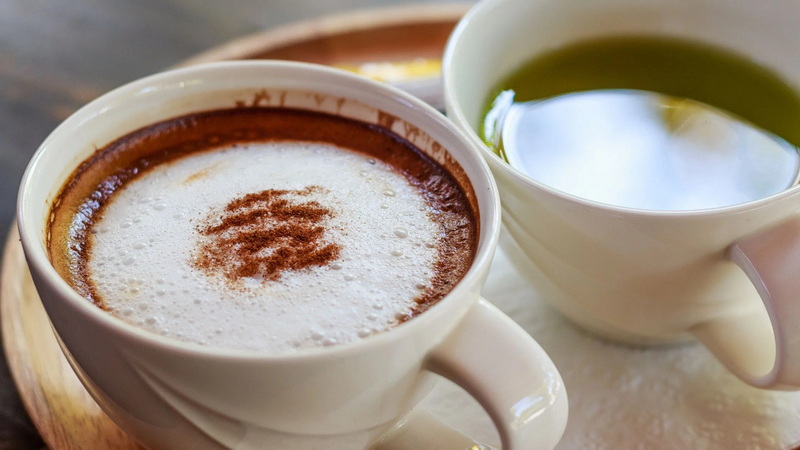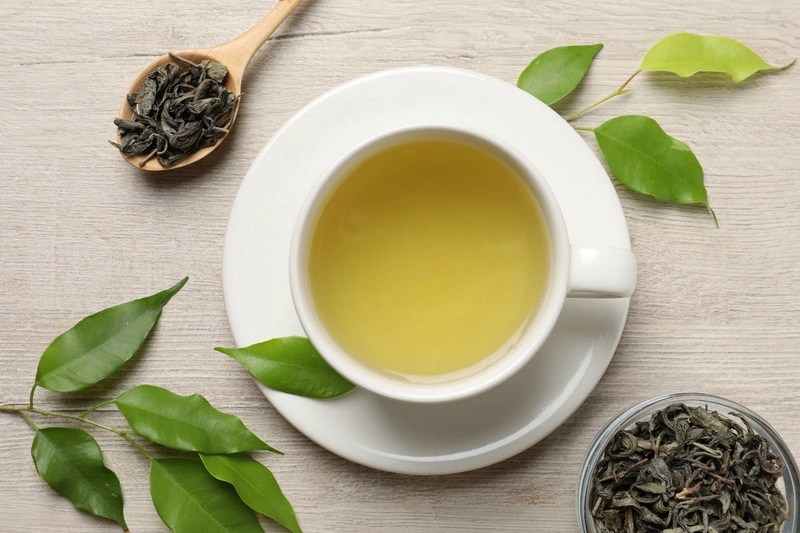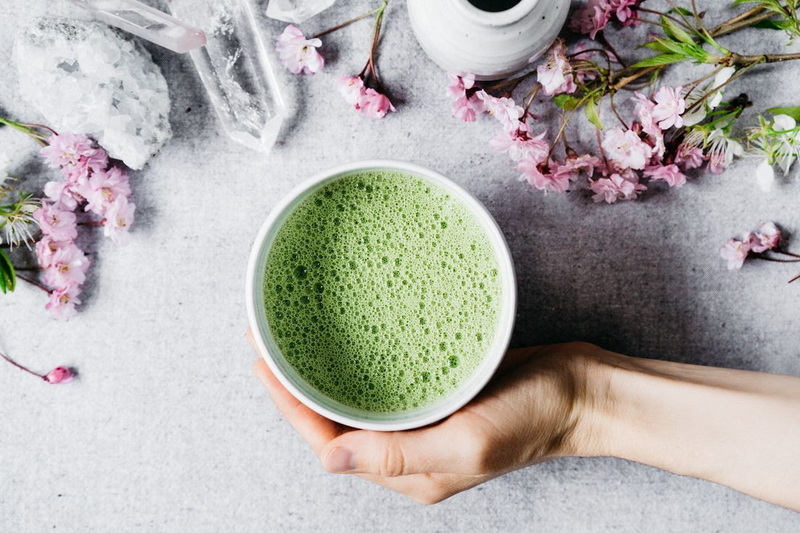Content Menu
● Understanding Green Tea Extract
● Factors Affecting Caffeine Levels
● Health Benefits of Green Tea Extract
● How to Incorporate Green Tea Extract into Your Diet
● Potential Side Effects and Considerations
● Combining Green Tea Extract with Other Supplements
● Conclusion
● FAQ
>> 1. What are the side effects of consuming too much green tea extract?
>> 2. Can I take green tea extract if I am sensitive to caffeine?
>> 3. How does green tea extract compare to brewed green tea?
>> 4. Is it safe to take multiple doses of green tea extract daily?
>> 5. Can I use green tea extract for weight loss?
● Citations:
Green tea extract has gained popularity as a dietary supplement due to its numerous health benefits, including weight loss support, enhanced cognitive function, and antioxidant properties. However, one common question that arises is: How much caffeine is there in 50mg of green tea extract? This article will explore the caffeine content in green tea extract, its effects, and related health benefits while providing comprehensive insights into its usage.

Understanding Green Tea Extract
What is Green Tea Extract?
Green tea extract is a concentrated form of green tea derived from the leaves of the Camellia sinensis plant. It retains many beneficial compounds found in green tea, particularly catechins, which are powerful antioxidants. The extraction process typically involves using solvents to isolate these compounds, resulting in a product that can be consumed in various forms such as capsules, powders, or liquids.
Caffeine Content in Green Tea Extract
The caffeine content in green tea extract varies widely depending on several factors, including the brand, processing method, and specific formulation. Generally, green tea contains about 30-50 mg of caffeine per 8-ounce cup. However, when it comes to green tea extract supplements:
- A typical serving of green tea extract can contain anywhere from 2 mg to over 200 mg of caffeine.
- For example, some brands may offer 500 mg of green tea extract with around 40 mg of caffeine per serving.
To specifically address the question regarding 50 mg of green tea extract, the caffeine content can be estimated based on the concentration of caffeine typically found in various formulations.
If we assume an average caffeine concentration of about 5-10% in green tea extract:
-5% Caffeine: 50 mg×0.05=2.5 mg50 mg×0.05=2.5 mg
-10% Caffeine: 50 mg×0.10=5 mg50 mg×0.10=5 mg
Thus, 50 mg of green tea extract may contain approximately between 2.5 to 5 mg of caffeine, depending on the specific product formulation.
Factors Affecting Caffeine Levels
Several factors influence the amount of caffeine present in green tea extract:
- Type of Green Tea: Different varieties of green tea have varying caffeine levels. For instance, matcha (a powdered form of green tea) generally has higher caffeine compared to other types.
- Processing Method: The method used to process and extract the tea leaves affects the concentration of caffeine and catechins.
- Brewing Time and Temperature: When preparing traditional green tea, longer brewing times and higher temperatures can lead to higher caffeine extraction.
- Formulation Differences: Some supplements may include additional ingredients that can affect absorption rates or alter the overall caffeine content.
Health Benefits of Green Tea Extract
Green tea extract offers various health benefits attributed to its active compounds:
- Weight Loss Support: Studies suggest that green tea extract can enhance fat oxidation and improve metabolic rates. The catechins in green tea help increase energy expenditure and fat burning during exercise.
- Antioxidant Properties: The catechins in green tea are known for their antioxidant effects, which help combat oxidative stress and inflammation. This can contribute to overall health by reducing the risk of chronic diseases.
- Cognitive Function: The combination of caffeine and L-theanine found in green tea can improve brain function and enhance focus. Research indicates that these compounds can work synergistically to promote alertness while reducing anxiety.
- Heart Health: Regular consumption may lower cholesterol levels and reduce the risk of cardiovascular diseases. Studies have shown that individuals who consume green tea regularly have a lower incidence of heart disease compared to those who do not.
- Blood Sugar Regulation: Some studies suggest that green tea extract may help improve insulin sensitivity and reduce blood sugar levels, making it beneficial for individuals with type 2 diabetes or those at risk for developing it.

How to Incorporate Green Tea Extract into Your Diet
Incorporating green tea extract into your diet can be done easily through various forms:
- Capsules or Tablets: These are convenient for those who prefer precise dosing without the taste associated with brewed teas.
- Powdered Form: Green tea extract powder can be mixed into smoothies or yogurt for an added health boost.
- Liquid Extracts: These can be added to water or other beverages for a quick way to consume green tea benefits.
When using supplements, it's essential to follow recommended dosages as indicated on product labels or advised by healthcare professionals.
Potential Side Effects and Considerations
While green tea extract is generally considered safe for most individuals when taken in moderation, there are potential side effects associated with excessive consumption:
- Gastrointestinal Issues: Some people may experience stomach upset or nausea when consuming high doses.
- Headaches: Increased caffeine intake can lead to headaches or migraines for sensitive individuals.
- Liver Toxicity: There have been rare reports linking high doses of concentrated extracts with liver damage. It's crucial to choose high-quality products from reputable brands.
Who Should Avoid Green Tea Extract?
Certain individuals should exercise caution or avoid taking green tea extracts altogether:
- Pregnant or breastfeeding women should consult their healthcare provider before using any supplements containing caffeine.
- Individuals with liver disorders should also seek medical advice before starting supplementation due to potential risks associated with concentrated extracts.
Combining Green Tea Extract with Other Supplements
Many people combine green tea extract with other dietary supplements for enhanced effects:
- Caffeine: Combining with other sources of caffeine may amplify energy levels but should be approached cautiously to avoid excessive intake.
- L-Carnitine: Often used for weight loss support; combining it with green tea extract could enhance fat metabolism during exercise.
- Protein Powders: Adding green tea extract powder into protein shakes can provide additional antioxidant support post-workout.
Conclusion
In summary, the amount of caffeine in 50 mg of green tea extract typically ranges from approximately 2.5 to 5 mg, depending on the specific product formulation. This relatively low amount makes it a suitable option for those looking to limit their caffeine intake while still enjoying some benefits associated with this popular supplement. Furthermore, the numerous health benefits associated with green tea extract make it a valuable addition to a balanced diet when consumed responsibly.

FAQ
1. What are the side effects of consuming too much green tea extract?
Excessive consumption may lead to side effects such as nausea, headaches, or liver issues due to high catechin levels.
2. Can I take green tea extract if I am sensitive to caffeine?
Yes, many formulations are available with low or no caffeine content for those sensitive to stimulants.
3. How does green tea extract compare to brewed green tea?
Brewed green tea typically contains more caffeine (30-50 mg per cup) than most extracts but offers fewer concentrated antioxidants.
4. Is it safe to take multiple doses of green tea extract daily?
Moderate intake (300-800 mg/day) is generally considered safe for most healthy adults; however, consult a healthcare provider for personalized advice.
5. Can I use green tea extract for weight loss?
Yes, studies suggest that it may aid weight loss by increasing fat oxidation and metabolic rates when combined with a healthy diet and exercise.
Citations:
[1] https://www.livestrong.com/article/186702-how-much-caffeine-is-in-green-tea-extract/
[2] https://www.sugimotousa.com/blog/caffeine-in-green-tea
[3] https://www.youtube.com/watch?v=5OlyxaRgabw
[4] https://www.healthline.com/nutrition/10-benefits-of-green-tea-extract
[5] https://www.elo.health/articles/green-tea-extract-supplements/
[6] https://www.zhounutrition.com/blogs/the-greatness-files/green-tea-extract-q-a
[7] https://si.chenlangbio.com/knowledge/do-green-tea-extract-have-caffeine-
[8] https://www.healthline.com/nutrition/caffeine-in-green-tea
[9] https://health.clevelandclinic.org/green-tea-extract-a-better-way-to-boost-energy-or-not
[10] https://www.caffeineinformer.com/caffeine-content/green-tea-extract
[11] https://www.medicalnewstoday.com/articles/269538
[12] https://www.urmc.rochester.edu/encyclopedia/content?contenttypeid=19&contentid=greenteaextract
[13] https://www.webmd.com/drugs/2/drug-76714/green-tea-leaf-extract-oral/details
[14] https://www.webmd.com/vitamins/ai/ingredientmono-960/green-tea
[15] https://www.reddit.com/r/chemistry/comments/3gt1zo/how_much_caffeine_in_green_tea_extract/
[16] https://hammernutrition.com/blogs/endurance-news-weekly/green-tea-extract-in-fully-charged
[17] https://pubmed.ncbi.nlm.nih.gov/16506807/
[18] https://www.medicalnewstoday.com/articles/269538
[19] https://www.elo.health/articles/green-tea-extract-supplements/
[20] https://www.sugimotousa.com/blog/green-tea-vs-coffee-everything-you-need-to-know
[21] https://www.livestrong.com/article/186702-how-much-caffeine-is-in-green-tea-extract/
[22] https://pmc.ncbi.nlm.nih.gov/articles/PMC7098939/
[23] https://www.youtube.com/watch?v=CkdqsIhHEhM
[24] https://pmc.ncbi.nlm.nih.gov/articles/PMC4307170/
[25] https://cytomatrix.ca/products/green-tea-extract-90-v-caps/
[26] https://www.youtube.com/watch?v=Q8gBjZ5e3Bs
[27] https://www.youtube.com/watch?v=RIbff5iD0GQ
[28] https://www.healthline.com/nutrition/top-10-evidence-based-health-benefits-of-green-tea
[29] https://pmc.ncbi.nlm.nih.gov/articles/PMC10930107/
[30] https://support.optimumnutrition.com/en/support/solutions/articles/80001094135-how-much-caffeine-is-in-your-green-tea-and-green-coffee-extracts-






























